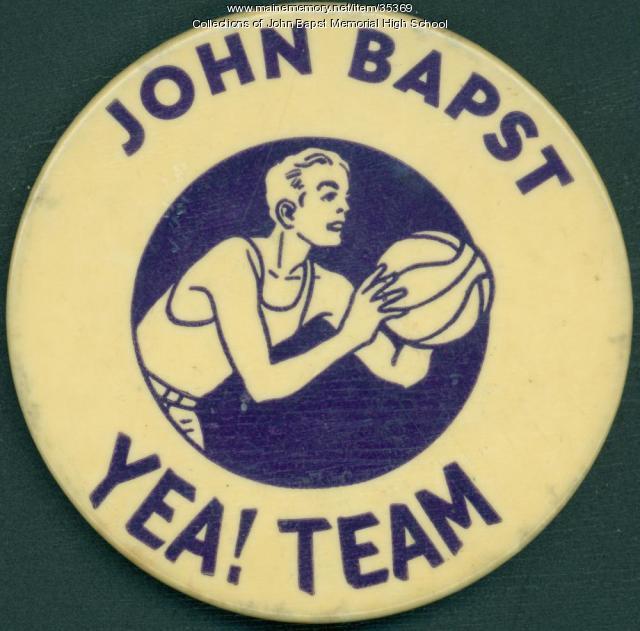Keywords: women athletes
- Historical Items (34)
- Tax Records (0)
- Architecture & Landscape (0)
- Online Exhibits (14)
- Site Pages (13)
- My Maine Stories (4)
- Lesson Plans (0)
Online Exhibits
Your results include these online exhibits. You also can view all of the site's exhibits, view a timeline of selected events in Maine History, and learn how to create your own exhibit. See featured exhibits or create your own exhibit
Exhibit
We Used to be "Normal": A History of F.S.N.S.
Farmington's Normal School -- a teacher-training facility -- opened in 1863 and, over the decades, offered academic programs that included such unique features as domestic and child-care training, and extra-curricular activities from athletics to music and theater.
Exhibit
World Alpine Ski Racing in Maine
Sugarloaf -- a small ski area by European standards -- entered ski racing history in 1971 by hosting an event that was part of the World Cup Alpine Ski Championships. The "Tall Timber Classic," as the event was known, had a decidedly Maine flavor.
Exhibit
Baseball often is called the National Pastime. For many people, baseball is encountered in the backyard and down the street, a game played by a few or the full contingent of a team.
Exhibit
Fallen Heroes: Jewish Soldiers and Sailors, The Great War
Thirty-four young Jewish men from Maine died in the service of their country in the two World Wars. This project, including a Maine Memory Network exhibit, is meant to say a little something about some of them. More than just names on a public memorial marker or grave stone, these men were getting started in adult life. They had newly acquired high school and college diplomas, they had friends, families and communities who loved and valued them, and felt the losses of their deaths.
Exhibit
In the early 1600s, French explorers and colonizers in the New World quickly adopted a Native American mode of transportation to get around during the harsh winter months: the snowshoe. Most Northern societies had some form of snowshoe, but the Native Americans turned it into a highly functional item. French settlers named snowshoes "raquettes" because they resembled the tennis racket then in use.
Exhibit
By the second half of the 20th century, skiing began to enjoy unprecedented popularity. Pleasant Mountain in Bridgton (later Shawnee Peak) was Maine's foremost place to join the fun in the 1950s and 1960s.
Exhibit
John Bapst High School was dedicated in September 1928 to meet the expanding needs of Roman Catholic education in the Bangor area. The co-educational school operated until 1980, when the diocese closed it due to decreasing enrollment. Since then, it has been a private school known as John Bapst Memorial High School.
Exhibit
Fashion for the People: Maine's Graphic Tees
From their humble beginnings as undergarments to today's fashion runways, t-shirts have evolved into universally worn wardrobe staples. Original graphic t-shirts, graphic t-shirt quilts, and photographs trace the 102-year history of the garment, demonstrating how, through the act of wearing graphic tees, people own a part of history relating to politics, social justice, economics, and commemorative events in Maine.
Exhibit
A Brief History of Colby College
Colby originated in 1813 as Maine Literary and Theological Institution and is now a small private liberal arts college of about 1,800 students. A timeline of the history and development of Colby College from 1813 until the present.
Exhibit
Field & Homefront: Bethel during the Civil War
Like many towns, Bethel responded to the Civil War by sending many soldiers and those at the homefront sent aid and supported families. The town grew during the war, but suffered after its end.
Exhibit
Poland Spring: Summering in Fashion
During the Gilded Age at the end of the nineteenth century, Americans sought to leave increasing urban, industrialized lives for the health and relaxation of the country. The Poland Spring resort, which offered a beautiful setting, healing waters, and many amenities, was one popular destination.
Exhibit
Begin Again: reckoning with intolerance in Maine
BEGIN AGAIN explores Maine's historic role, going back 528 years, in crisis that brought about the pandemic, social and economic inequities, and the Black Lives Matter movement in 2020.
Exhibit
Immigration is one of the most debated topics in Maine. Controversy aside, immigration is also America's oldest tradition, and along with religious tolerance, what our nation was built upon. Since the first people--the Wabanaki--permitted Europeans to settle in the land now known as Maine, we have been a state of immigrants.
Exhibit
Summer Folk: The Postcard View
Vacationers, "rusticators," or tourists began flooding into Maine in the last quarter of the 19th century. Many arrived by train or steamer. Eventually, automobiles expanded and changed the tourist trade, and some vacationers bought their own "cottages."














